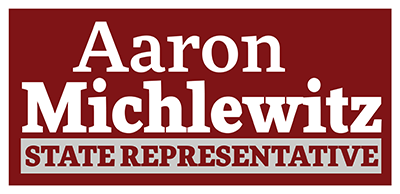By Jon Chesto and Tim Logan, Boston Globe
July 30, 2018
Legislative leaders reached an agreement Sunday that would extend the state’s hotel tax to Airbnb units and other short-term rentals, a change that could raise at least $25 million a year for the state and at least a similar amount for cities and towns.
“We produced one of the strongest short-term rental bills in the country, ” said Representative Aaron Michlewitz, a Democrat from Boston’s North End and a key negotiator in the short-term rental debate. “We were creating a new framework for a brand new industry. We wanted to make sure we did it right. It’s very complicated.”
The House and Senate are expected to vote on the measure and send it to Governor Charlie Baker on Monday.
The agreement came with just over two days left in formal sessions for the year. The July 31 deadline gives Baker additional control over the future of the bill: If he decides he doesn’t like the bill and waits until after Tuesday to veto it or send it back to the Legislature with an amendment, the Legislature would be powerless to override his decision this year.
It’s unclear how Baker will react. However, he has previously supported legislation that would exempt homeowners who rent units for fewer than 150 days in a given year. That would be particularly helpful for people who rent out their homes on the Cape and Islands during the summer months.
A spokeswoman for Airbnb had no immediate comment.
With few exceptions, the bill automatically imposes the 5.7 percent hotel tax on all short-term rentals, Michlewitz said. The range of units that the bill would affect include those advertised on the Airbnb website as well as bed-and-breakfasts and second homes offered to vacationers.
But that’s not the only tax. Cities and towns would have the option to add an additional 6 percent, as they do with hotels now. (Boston can go up to 6.5 percent.) And if an owner has more than one unit in a particular community, that municipality can add another 3 percent tax to the second unit and all additional units in that city or town, Michlewitz said.
If communities choose to impose that 3 percent surcharge, they will have to spend 35 percent on affordable housing and transportation infrastructure, he said.
“We will be the first state in the nation that will be using money garnered from the short term rental industry to help with affordable housing,” Michlewitz said. “In our larger municipalities, that has been a big issue, especially in Boston.”
Homeowners on the Cape and Islands would face another tax: a 2.75 percent charge that would go into a new fund for wastewater treatment. This new tax would be extended to hotels on the Cape and Islands, too, Michlewitz said.
There’s another surcharge specific to units in Boston, Cambridge, Worcester, Springfield, West Springfield and Chicopee. This 2.75 percent surcharge would go to the Massachusetts Convention Center Authority, much like an existing one for hotels in those communities.
The bill also kept a House proposal to track short-term rentals via a registry. The unit addresses would be available to the public, but not the homeowners’ names.
“There is a need in this industry for transparency,” Michlewitz said.
Airbnb and other short-term rental platforms have pushed back against public listings in other states, saying they violate the privacy of rental hosts. But advocates for the registries say they enable residents to know how much short-term rental activity is going on in their neighborhood, and allow regulators to better track it.
Boston and Cambridge have included public databases in their new regulations for the short-term rental industry.
Ford Cavallari, chair of the Alliance of Downtown Civic Organizations, said the statewide bill would strengthen the hand of cities, such as Boston, that have recently passed their own stringent new regulations.
“In just about every city ADCO has looked at, once short-term regulation becomes law, Airbnb’s response to the municipality has been ‘See you in court,’” he said. “Airbnb is going to have to say ‘see you in court’ to Attorney General Maura Healey. We’re thinking that’s not going to happen.”
The head of the Massachusetts Lodging Association, a hotel trade group that had pushed for tougher regulation, applauded the deal. “The conference committee did an outstanding job of producing a plan that is quite fair to all concerned and very doable,” said association chief executive Paul Sacco.
Joan Talmadge, co-owner of the WeNeedAVacation.com website for Cape and Islands rentals, said the bill will unfairly hurt many Cape homeowners who aren’t making a profit on their rentals. Many will be forced to absorb much or all of the new tax, instead of fully passing it on to their renters, she said.
“We’re extremely disappointed that the legislature has chosen to treat Cape and Islands vacation home rentals the same as hotels, motels, and Airbnb business entities,” Talmadge said. “The vast majority of Cape and Islands homeowners rent out one home — for some it’s their primary home — during the short summer season.”
